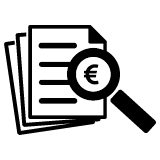Challenges
In development cooperation, programme audit plays a vital role in safeguarding donor funds, verifying compliance, and achieving development objectives. However, effective auditing is often hindered by systemic challenges that limit the ability of institutions to monitor, learn, and improve:
- Fragmented oversight systems: In many countries, audit functions are poorly integrated with programme implementation, creating gaps in accountability and follow-up.
- Capacity constraints: Audit institutions and implementing partners often lack the technical expertise, tools, or independence required to conduct audits in line with international standards.
- Regulatory complexity: Navigating diverse donor and national audit requirements demands detailed knowledge and tailored audit methodologies - something not all organisations can access or apply.
- Limited use of audit findings: Even when audits are conducted, recommendations are not always acted upon due to a lack of institutional will, systems, or capacity for corrective action.
- High-risk environments: In fragile or politically sensitive contexts, conducting independent and effective audits requires both technical skills and contextual sensitivity to maintain credibility and ensure impact.
GFA concept and services
GFA’s Public Finance Management (PFM) Department provides independent, professional programme audit services that strengthen financial oversight, support learning, and foster institutional integrity. Our approach combines international best practices with hands-on experience across a wide range of countries and sectors.
INDEPENDENT AUDIT SERVICES
- Execution of internal and external audits for donor-funded programmes
- Development of tailored audit methodologies in line with donor frameworks (e.g., Global Fund, EU)
- Verification of fund utilisation, compliance with contracts, and achievement of programme goals
- Comprehensive audit reporting and follow-up with actionable recommendations
CAPACITY DEVELOPMENT AND SYSTEMS STRENGTHENING
- Support to Supreme Audit Institutions (SAIs) and public bodies to enhance their audit capabilities
- Development and revision of audit manuals and quality assurance procedures
- Training in risk-based auditing, performance audit, and ISSAI standards
AUDIT AS A RISK MITIGATION TOOL
- Integration of audit functions with financial management and anti-fraud systems
- Early identification of non-compliance and systemic weaknesses
- Promotion of institutional learning and adaptive programming
PROVEN IMPACT
GFA has a long-standing track record in strengthening audit functions in public institutions and donor programmes. In Georgia, for instance, GFA helped modernise the State Audit Office by updating audit manuals in line with European standards, improving implementation rates of audit recommendations, and supporting the development of a national quality assurance framework.
In fragile contexts such as in the Democratic Republic of Congo and Sudan, we have embedded audit and verification services within fiscal agent roles resulting in real-time oversight and reinforcement of fiduciary integrity.
WHY GFA?
- Internationally aligned audit methodologies, rooted in ISSAI, ISQC-1, and donor-specific frameworks
- Deep experience in audit capacity development for national institutions and implementing partners
- Ability to operate in high-risk and politically sensitive environments
- Integration of audits into wider financial accountability and programme learning systems
> Learn more about GFA´s PFM Department and download our capability statement (PDF).
Contact
 Simon Ansel
Simon Ansel
Portfolio Manager
E-mail: simon.ansel[at]gfa-group.de
 Louis Leca
Louis Leca
Portfolio Manager
E-mail: louis.leca[at]gfa-group.de
Photo title: Andrey Popov | istock






